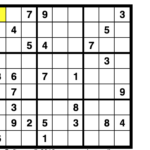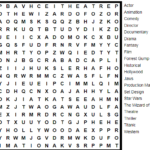 Take a look at what Cleveland Clinic Lou Ruvo Center for Brain Health is doing to help athletes and others impacted by head trauma protect their brain health and advance the science of chronic traumatic encephalopathy.
Take a look at what Cleveland Clinic Lou Ruvo Center for Brain Health is doing to help athletes and others impacted by head trauma protect their brain health and advance the science of chronic traumatic encephalopathy.
A New Athlete Study
Cleveland Clinic Lou Ruvo Center for Brain Health is part of a landmark study of chronic traumatic encephalopathy (CTE), a neurodegenerative disease that has been reported in professional football players, boxers and other athletes with a history of repetitive brain injuries.
The study – DIAGNOSE CTE – is the first to investigate our ability to detect CTE in living players. CTE, which is thought to be associated with changes in mood, behavior and cognition, historically has been diagnosed only by postmortem examination of the brain. This disease has received considerable attention with the discovery of damage in the brains of deceased athletes.
“We want to protect athletes’ brain health, and I believe everyone involved in athletics wants that. We want to protect against the effects of head injury wherever it occurs. We’re concerned about those experiencing military combat, traffic accidents, domestic abuse. This is a set of lessons that will have wide implications in society,” says Jeffrey Cummings, MD, ScD, Director of the Lou Ruvo Center for Brain Health and a co-principal investigator of the study, which is being led by Boston University School of Medicine and funded by the National Institutes of Health (NIH).
DIAGNOSE CTE will examine 240 men ages 45 to 74: 120 former National Football League players; 60 former college football players with and without CTE symptoms; for comparison; 60 men who have never participated in contact sports.
Participants will undergo extensive testing at four centers, including the Lou Ruvo Center for Brain Health. Included will be brain scans (PET and MRI), blood tests and neuropsychological assessments, with the goal of finding biomarkers and other indicators of changes in the brain associated with CTE.
“If we can develop clinical criteria to detect CTE, we could enroll the right people in clinical trials to test medications that could treat it,” says Sarah Banks, PhD, a neuropsychologist at the Lou Ruvo Center for Brain Health and an investigator on the study.
What Role does Genetics Play?
The study will probe other factors – genetics, lifestyle and history of head injuries – that may influence why some players develop CTE and others don’t. This study fits well with the research the Lou Ruvo Center for Brain Health has been conducting for years on athletes involved in contact sports, including the Professional Fighters Brain Health Study led by Charles Bernick, MD, MPH, who is an investigator on the CTE study.
Learn more about clinical trials and their importance in advancing science at our Healthy Brains Clinical Trials page.
For more information about participating in clinical trials contact us at [email protected]









